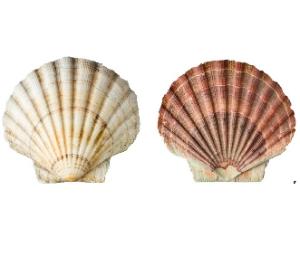HPC Research Highlights
Scallop Genome

As part of the Wellcome Trust Sanger Institute's 25th Anniversary celebrations the reference genomes for 25 previously un-sequenced UK species are to be produced. The King Scallop, Pectens maximus was chosen as one of these species due to its unusual vision, shell colouring, and ability to harbour toxin producing bacteria.
This species has a series of eyes along the mantle edge that have a double retina and unique mirror optics. If a predator approaches they are capable of swimming short distances to escape. Investigating the scallop optical pathways is a key step in understanding eye development and evolution. They have two valves to their shell - one is white and the other red. Colour and pattern are key traits with important roles in camouflage, warning and attraction in the animal kingdom. Identifying molecular pathways for shell pigment production in Mollusca has lagged behind studies of pigments in vertebrates and terrestrial invertebrates, and is a major gap in our understanding of how colour has evolved in the natural world. High levels of toxins from bacteria can make these scallops inedible, impacting on our fishing industry. Therefore, understanding why some scallops are toxic, and others are not, has potential economic impact.
In order to assemble and study this genome PacBio and chromium 10X sequencing have been performed, producing approximately 500GB of raw sequence data. Assembly of the genome is non-trivial and computationally-intensive due to the high levels of heterozygosity present in invertebrates. Once assembled Illumina transcriptomic data will be produced in order to assess the assembly, identify protein coding regions and compare tissues. The assembled and annotated genome will act as the basis for further research into Pectens maximus, with the current research goals being identification of rhodopsins, pigment production pathways, and neurotoxin resistance mechanisms.
Image copyright Natural History Museum and Harry Taylor
Last modified: Mon, 25 Mar 2019 15:38:36 GMT
